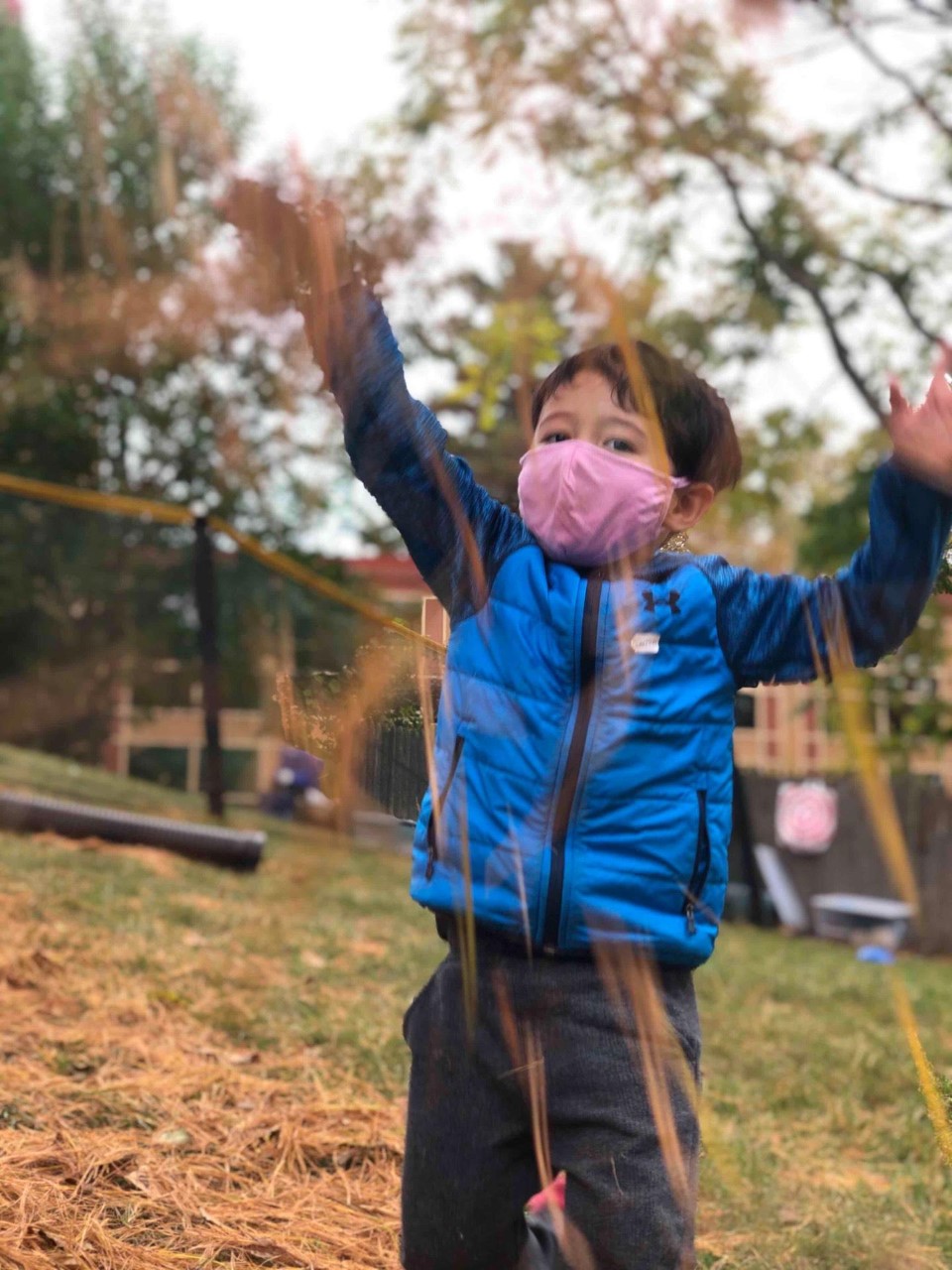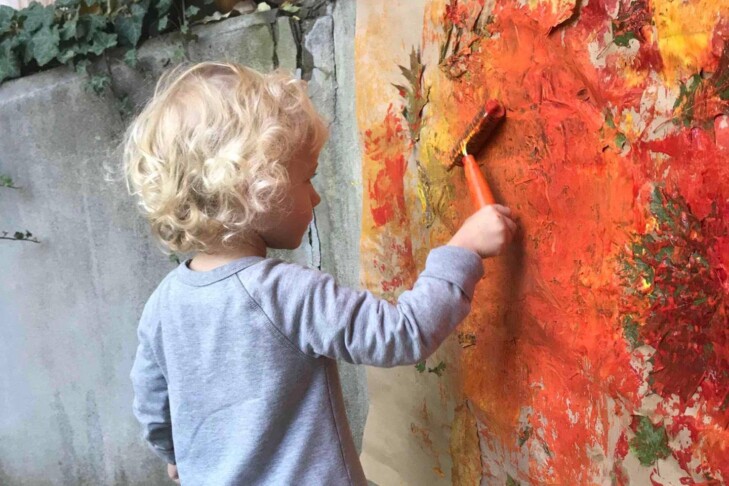The COVID-19 pandemic has disrupted many areas of our lives. The field of early education and care has been impacted in a devastating way. It is predicted that nearly 50% of schools will not be able to reopen without urgent financial help.
Reopening schools requires brave and careful thinking. Here at Temple Shalom Nursery School, we have found our courage in the wisdom of Jewish tradition and its core values: community, resilience and joy.
We believe that nature and an outdoor education are a wonderful platform for learning about Jewish ways of living and entering the spiritual state of awe and wonder. Even before COVID-19, being outdoors was always a big part of learning experiences in our school. Every day, our children are reminded that joy is not just a feeling; it is a skill. Small and big adversities in life uncover opportunities for joy if approached with a sense of gratitude. Rain brings puddles, a warm jacket wards off cold and patience brings a delicious harvest.
This year, being outdoors acquired an even greater meaning—the safety and health of our community. With the generous support of nursery school families and the Temple Shalom congregation, we have moved our classrooms outside. The lush green lawn and the tall trees on temple property have become the floors and walls of our school. A few tables, plastic bins for personal belongings, hammocks, camping sinks and toilets meet our basic needs, while books, sticks, pinecones, acorns, leaves and flowers provide endless opportunities for exciting and engaging learning. After three full months of schooling outdoors, we have rediscovered the wonderful difference that outdoor learning makes for our children.

If you have some experience being around a group of toddlers or preschoolers, you have probably witnessed the vibrant and lively energy of running and jumping feet, excited voices, exaggerated movements and dramatic upsets. Groups of young children are naturally loud and exuberant. But most indoor spaces are not designed to withstand this liveliness. Being indoors puts pressure on very young brains: “use your walking feet,” “find your indoor voice,” “be safe,” “wait for your turn,” “share!” Outdoors, however, children discover a natural, evolutionary-demanded freedom to be who they are and learn self-constraint only when their brains are ready.
The classroom that has no walls or ceiling soaks up loud voices, allows for stomping and skipping feet, holds up to crashing and rolling bodies and offers an immediate retreat on the soft grass or a mound of whispering leaves. Everything is pleasant to touch, hold, look at, smell, explore and play with! Sticks, rocks, ants, mud and pine needles satisfy a craving for curiosity, ignite questions and provide gratifying sensory experiences.
Our outdoor classrooms are inviting and dynamic. Wind, rain, sunshine and clouds catch out attention and sharpen our observation skills. A helicopter flying above, a trash truck appearing every Monday, the sound of a church bell every noon. All these things connect us to the larger community and bring us back home, to shared stories, conversations and adventures with friends.
Our classes have become smaller—only 10 children with two teachers. But this size allows for closer and deeper relationships. During a class conversation, one child exclaimed: “And now I know what everyone thinks! Last year there were so many of us, it would take forever to listen to everybody!” From the mouths of babes! This is true for teachers as well. It seems as if it has become easier for us to hear our students. We admire the depth and the beauty of the children’s thinking. We are able to slow down together.

Just pause with us for a moment:
After experiencing cloudy weather, children noticed a clear blue sky.
E: I don’t see any clouds.
El: Maybe they are on vacation.
L: I know, they are going to cloud land! It’s another planet like our puzzle.
T: It’s gonna rain. I have my boots just in case.
R: Clouds…they are in the ocean. That’s where they go.
Our life in the outdoor school is simple: We enjoy every weather, we do everything outside and we don’t feel a need to rush anywhere. But this simplicity transforms into a very rich life. As children don’t need to share materials on every occasion (there’s an abundance of sticks and leaves!), they learn to share ideas instead. As they don’t have to restrain their emotional expressions often (there’s more than enough time and space to feel and think deeply), children learn to appreciate their authentic selves and to respect others for who they are. What more can we ask for? We are simply happy to be with one another.
We practice hope, resiliency and joy every day. Together, we are building a great school and want to contribute to the healthy future of our community.
Lucy Banerji is the director of Temple Shalom Nursery School.
This post has been contributed by a third party. The opinions, facts and any media content are presented solely by the author, and JewishBoston assumes no responsibility for them. Want to add your voice to the conversation? Publish your own post here. MORE


